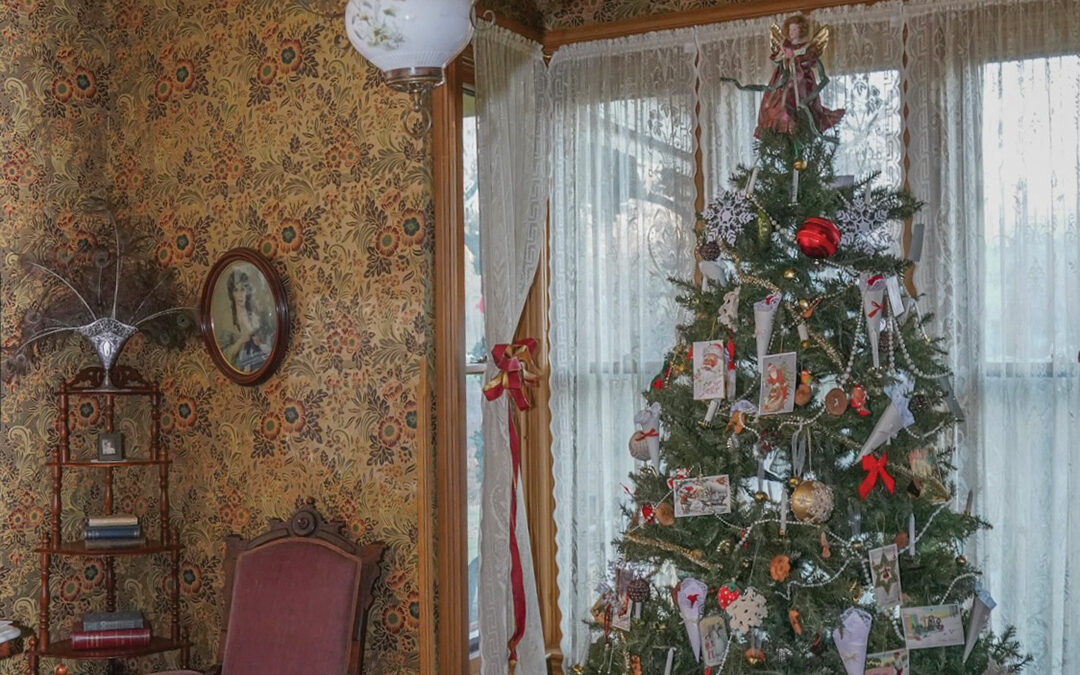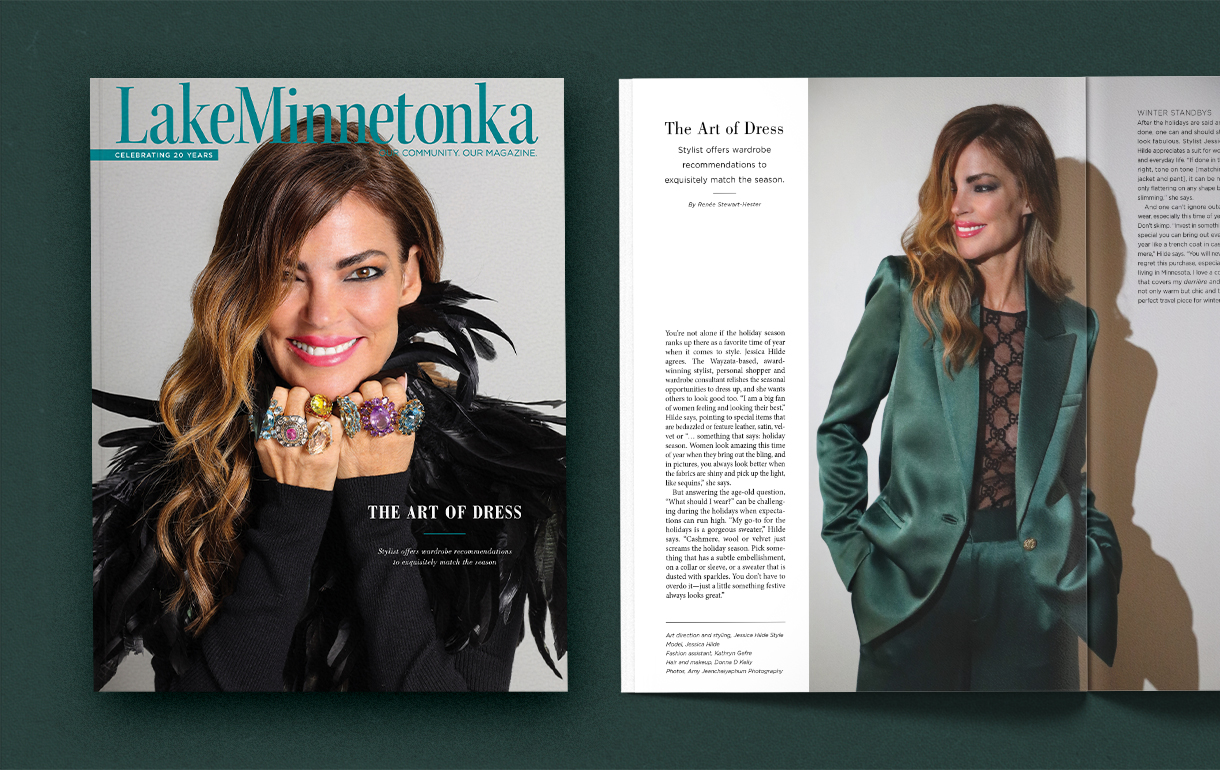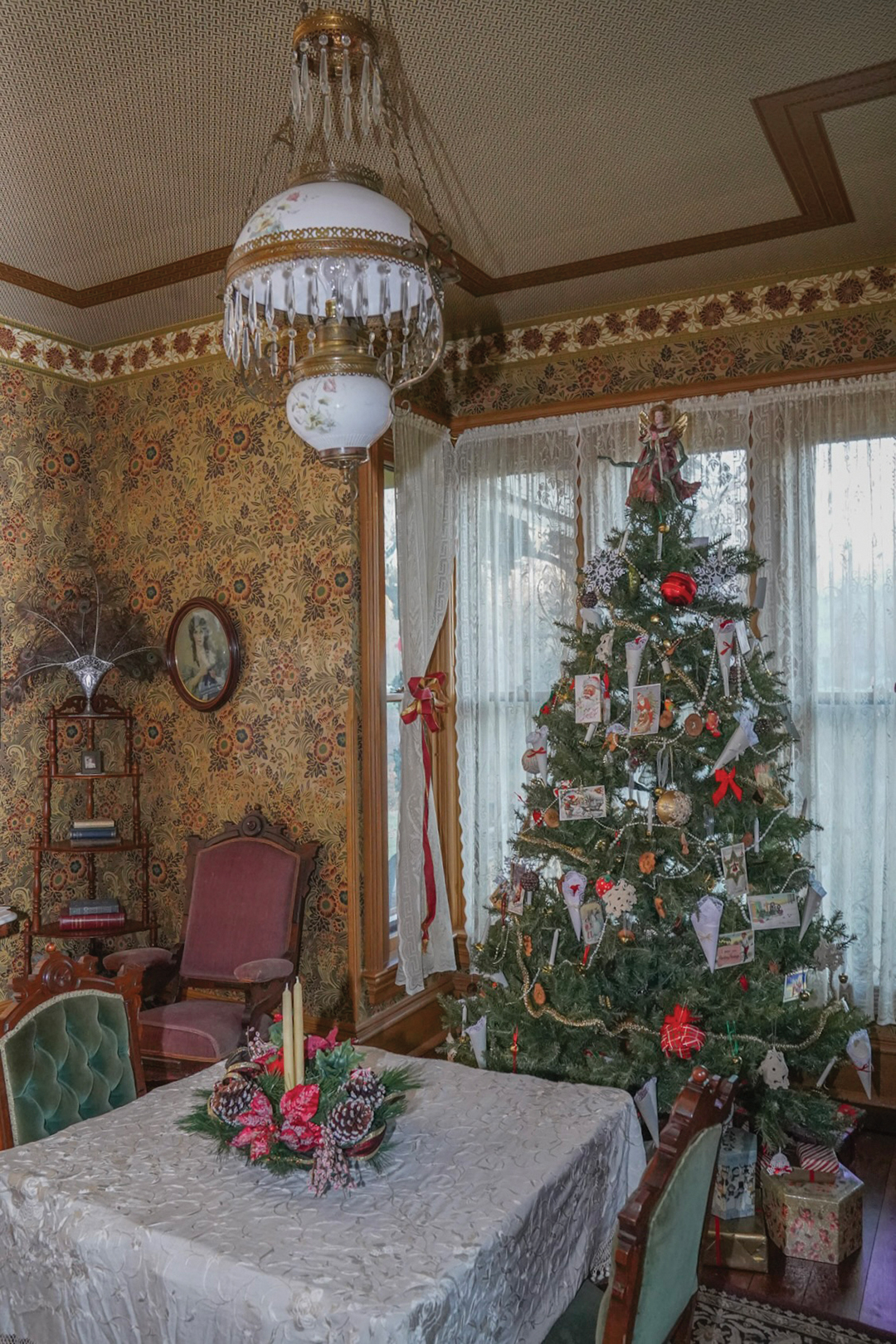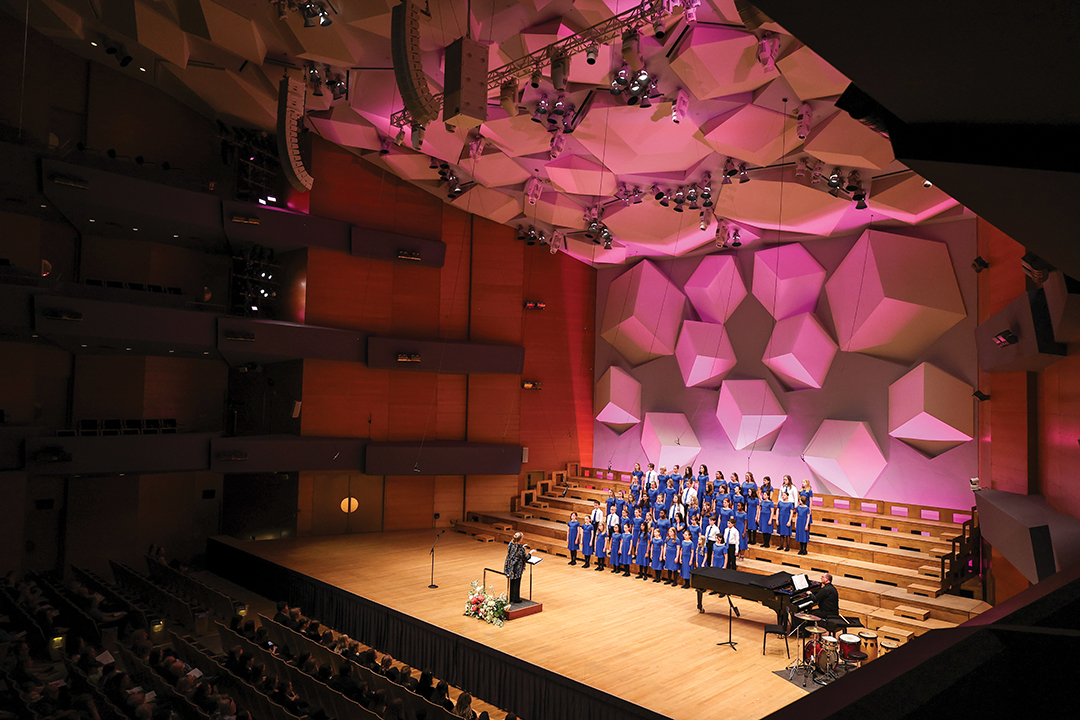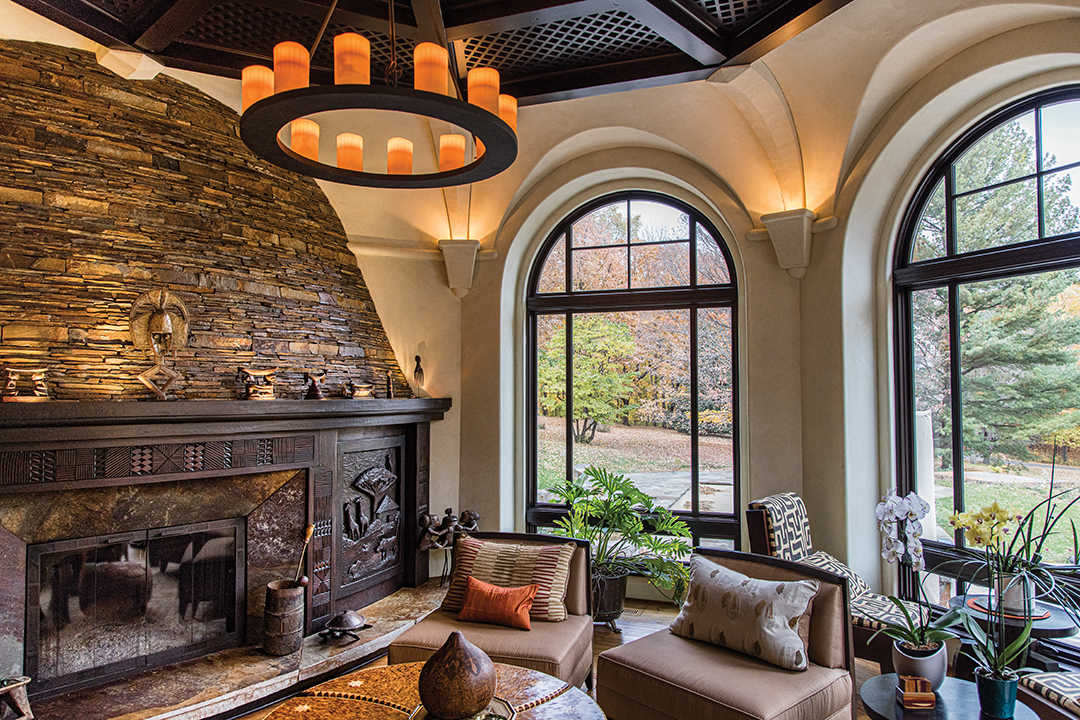
The fireplace elements for a home on Breezy Point Road in Woodland, illustrate some of the homeowners’ special interests, and Erik Wyckoff was able to bring their vision to life through his work. “The design was significantly influenced by the clients’ extensive travels and philanthropy to many African villages,” says Jason Kruell, vice president with Charles Cudd Co. “Erik’s design allowed them to express their commitment and involvement in those communities.” Photos: Chris Emeott
Woodcarver’s work embraces a sense of enchanting timelessness.
Consider the possibilities when a school fieldtrip ignites and inspires a student’s imagination. When he was a child, Erik Wyckoff’s interest in wood carving was piqued while touring historic homes, including St. Paul’s James J. Hill House. “I was fascinated by the carved mantels, doors and stairs,” he says. “My parents loved history and revered traditional craftsmen like carpenters and boatbuilders, so my interest was encouraged.”
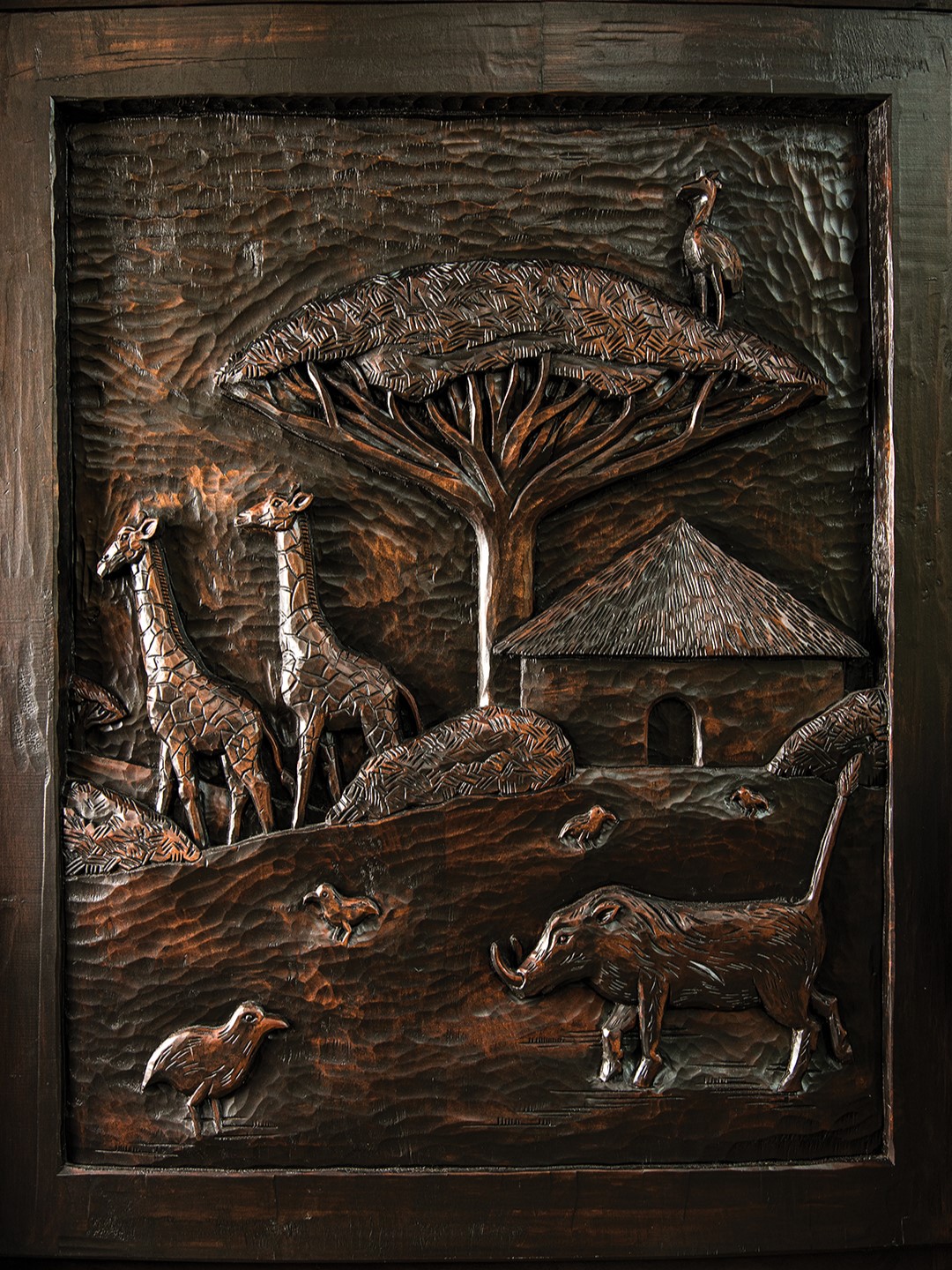
As a professional woodcarver, one can see Wyckoff’s handiwork not only in the Lake Minnetonka area, but throughout the state and country. For the last 28 years, he’s been working full time out of his Minneapolis workshop, creating one-of-a-kind elements that speak to clients’ décor aesthetics, familial heritage, unique interests and even marital love.
In order to develop his craft, Wyckoff studied with local master carver Konstantinos Papadakis, who specializes in Greek Orthodox churches. “Konstantinos learned from a line of teachers, stretching back to antiquity,” he says. “I would not have been able to succeed as a professional woodcarver without all I learned from him.” (Discover more at artisticwoodcarvingstudio.com.)
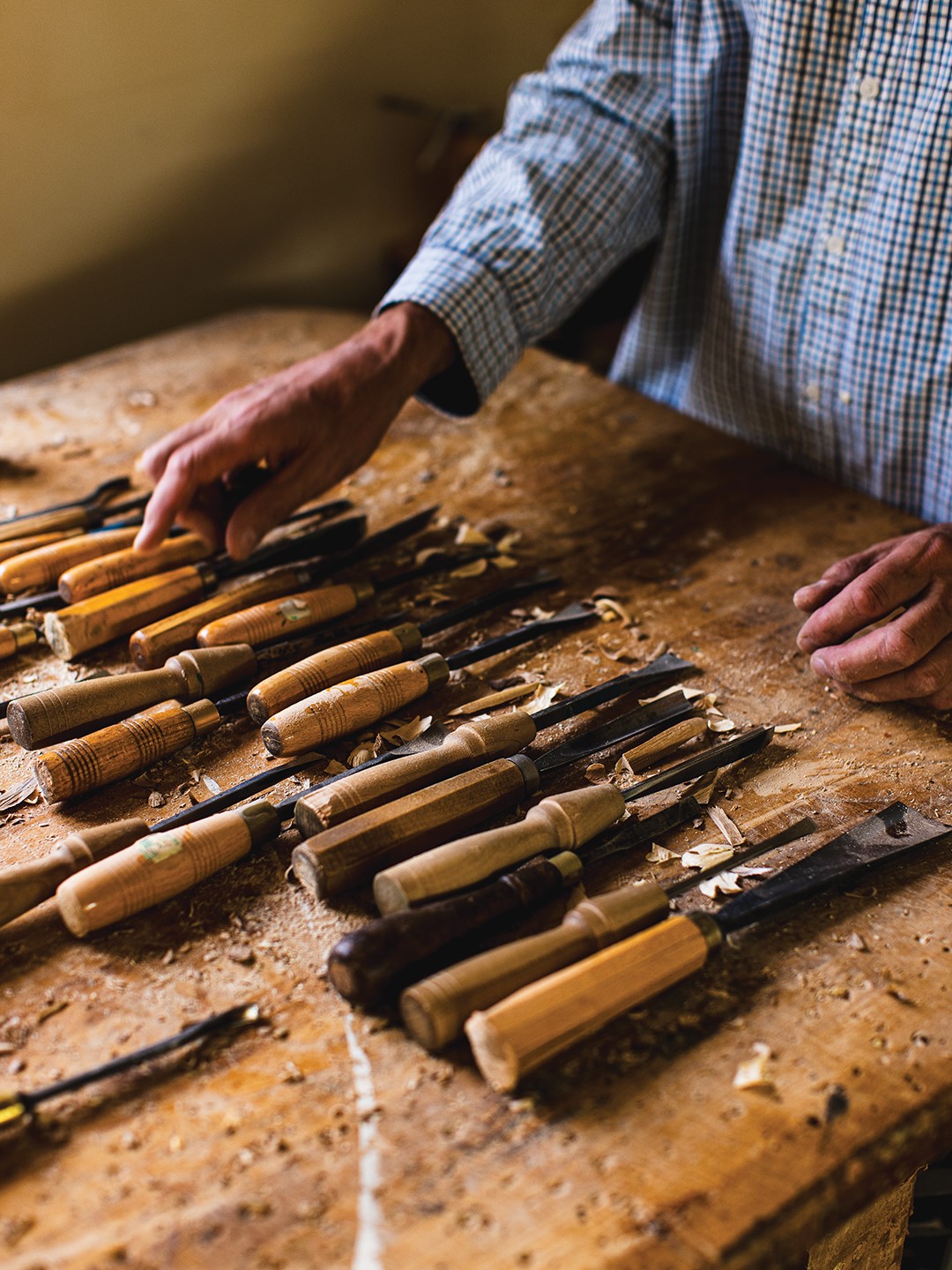
The depth of what Papadakis shared with Wyckoff flows with artistic, historical and practical knowledge. “He taught me how to hold the tools, how to carve efficiently [and] how to push the curved chisels, called gouges, through the wood, both with my hands and using a small mallet,” Wyckoff says. He also learned how to carve birds, flowers, grapes and the scrolling acanthus leaf, which Wyckoff says is the foundation of every decorative carving style throughout history. “This foundation has allowed me to design and carve a wide range of projects from Italian-style wine cellar doors and French mantels to Black Forest-style mantels for rustic cabins,” he says.
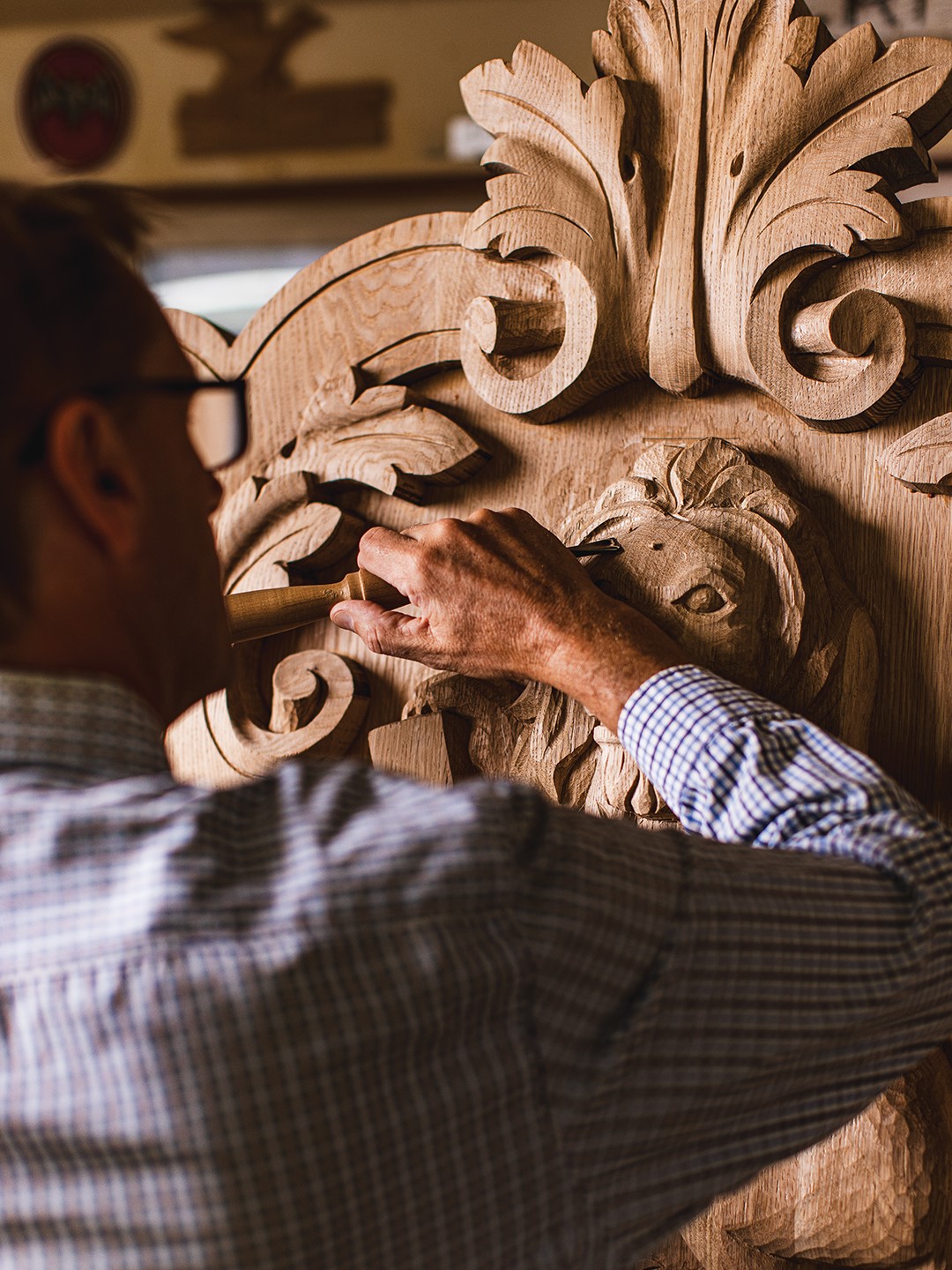
Some of Wyckoff’s other projects include a carved paneled study, which was inspired by spaces in the Minnesota State Capitol. (That project is included in 2013’s Great Houses of Summit Avenue and the Hill District.) “The room was carved in the Renaissance-Revival style and featured loons, dear and beavers hidden amidst the scrolling leaves,” he says. The artist also points to the replication of the missing wood carvings for the restoration of the Donaldson Mansion on Mount Curve in Minneapolis’ Kenwood neighborhood. Another project in Medina features a French-style relief carving over a door, featuring the unique tools and symbols of the owner’s industrial empire.
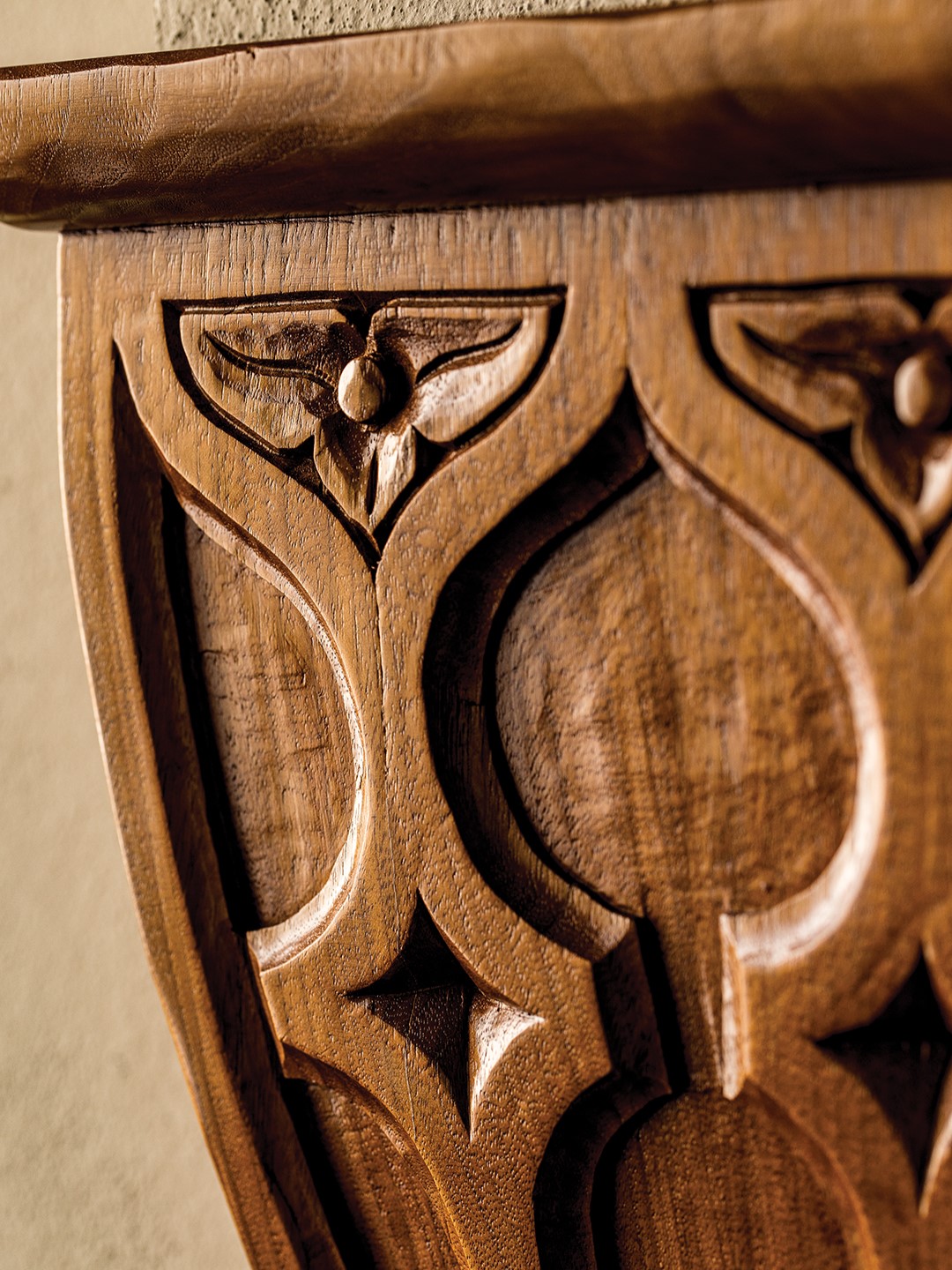
Erik Wyckoff delves into research for his projects. “The historic decorative arts from medieval churches to French tapestries provide a vast resource to me for inspiration,” he says. “Creating carvings that are correct to a historic style adds a sense of timelessness and permanence to a home.”
While it can be difficult for an artist to identify a favorite piece or project, Wyckoff is especially appreciative of work he did on doors and panels, based on France’s Château de Chambord, for a Maplewood home’s wine cellar. “The owner loved both the look and history of the chateau and wished to be immersed in France when inside his cellar and tasting room,” he says. Work also included a bar top under glass, carved with mythical beasts and foliage. “I conceived of the bar top as a cabinet of curiosities that would be a conversation starter—much like the natural science collections of a 19th century gentleman,” he says. Perhaps for more sentimental reasons, Wyckoff highlights work for an older couple, which featured a carved panel with vines and a pair of cardinals. “Because cardinals mate for life, they have always been a totem for the owners,” he says.
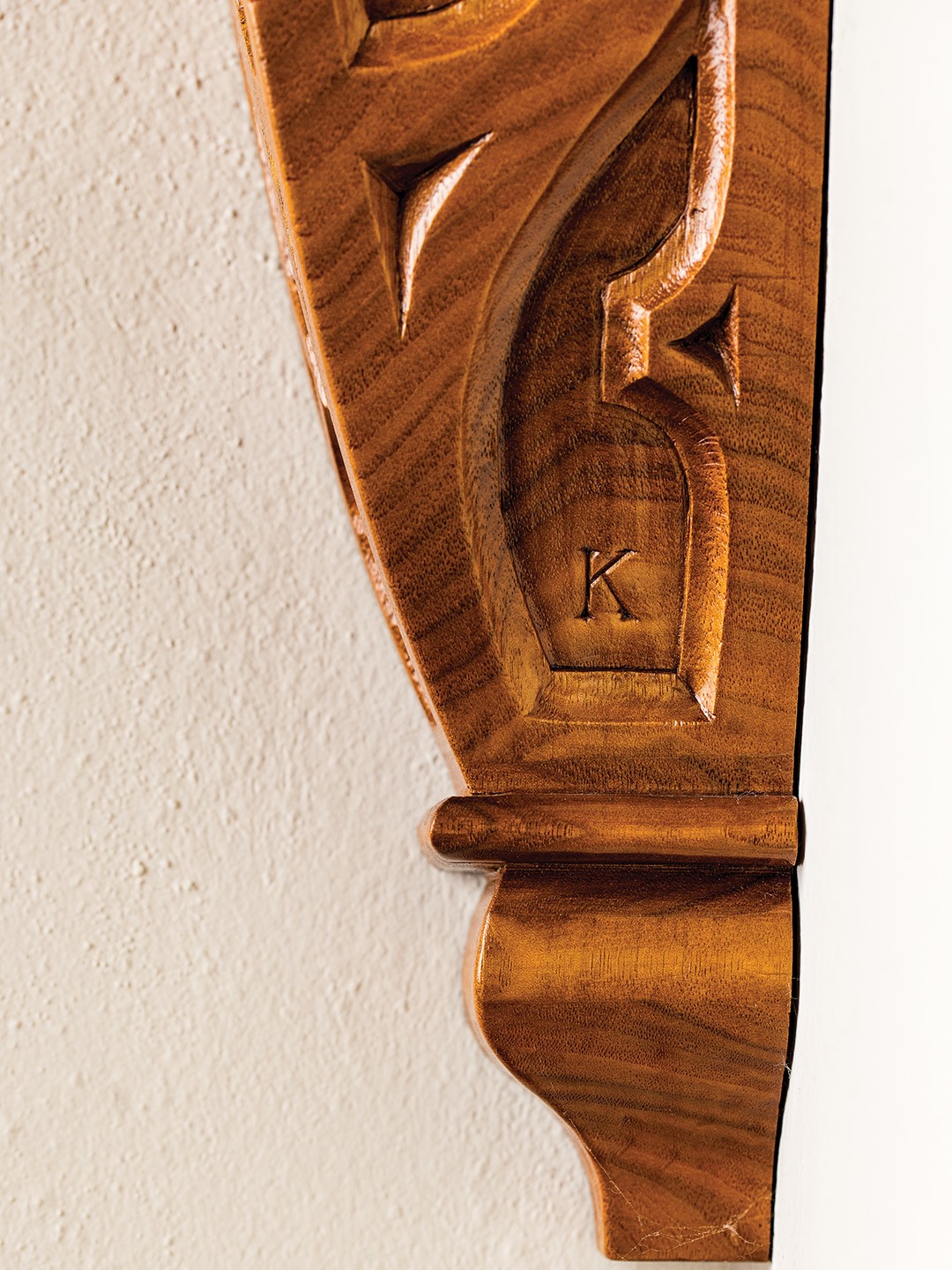
Like any custom work, Wyckoff receives assorted requests from clients, but most fall within the traditions of Old World decorative art, he says, like animals, flowers and scroll work, for example. “It is my job to make sure a request is researched for historical accuracy and tastefully integrated into the architecture and interior design,” he says. “I am often part of a team with one or more design professionals. Because the interior designers have the big picture in mind, I make sure they approve of my designs as well as the owner.”
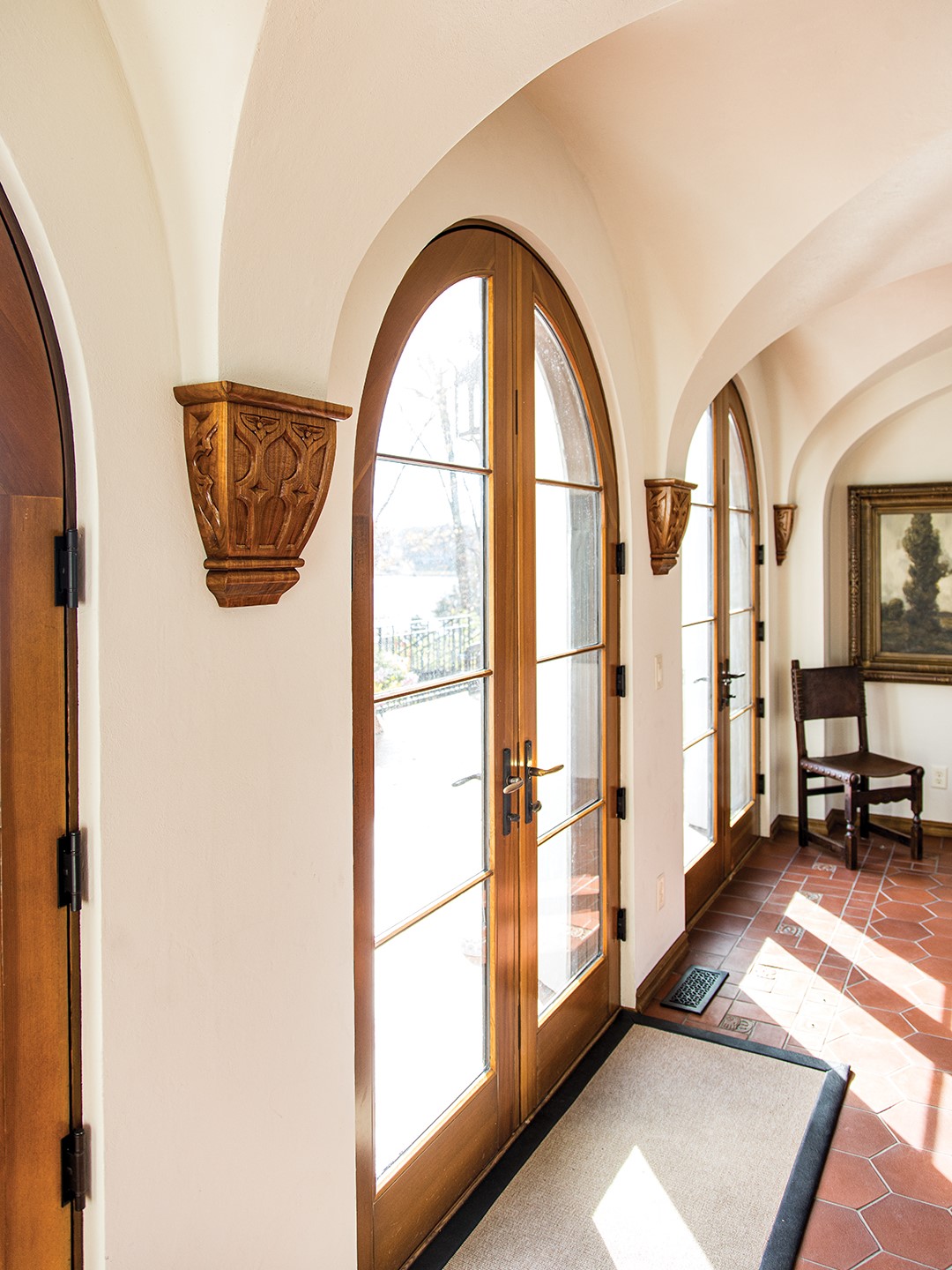
With so much time given to research, planning and creating, one might assume it can be difficult for an artist to watch work depart from the workshop or studio. “I love the design and carving activity,” Wyckoff says. “I try to enjoy each working minute for what it is. I try to think of the owners, enjoying my work while I am creating it. It makes me very happy knowing that my creations are in loving homes. Many kind people have sent me handwritten notes, thanking me and describing the pleasure my work brings them every day. I never imagined I could be so lucky.”
The Craftsman
Introductions can be everything. The team at Wayzata’s Murphy & Co. Design introduced Steve and Susan Rudolph of Orono to the exquisite work of Erick Wyckoff. “Erik carved eight individually unique [willow] corbels for our front entry gallery,” Steve Rudolph says. “The corbel feature was used as a means to highlight the groin vault ceiling and tie it into the wall below. It fits well with the style of the house and matches similar design features elsewhere.”
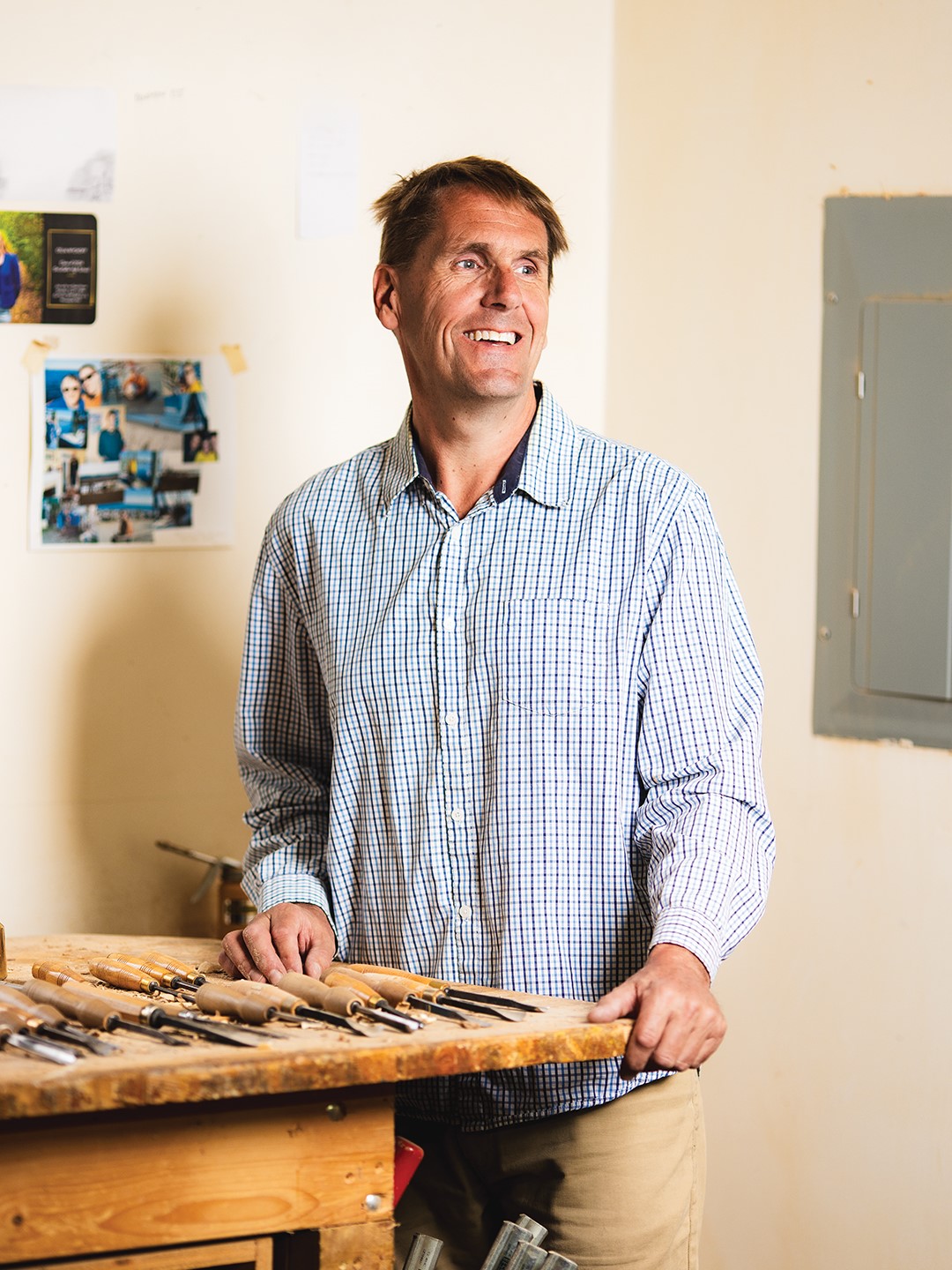
Erik Wyckoff
Behind every great design element is an idea or inspiration. “We were completing a remodel and addition on a 1929 Spanish Revival home,” Steve says. “Therefore, our goal was to match the new materials seamlessly with the existing architectural details throughout the original house. In that 1920s–1930s era, every detail had to be completed by hand by artisan tradesmen who spent a lifetime honing their skills. I don’t think there was much in the way of automation in construction or design work at that time, so we were basically looking for someone who could similarly create this sort of detail and replicate the one-of-a-kind, handmade appearance.”
Enter the craftsman—Wyckoff. “The detailing on the corbels Erik created drew on the classic Spanish Revival gothic arches that existed elsewhere in the original home,” Steve says. “This was a very effective way to help keep the feeling of the home consistent from one end to the other (from the old to the new). Most people that come into our new front entry do not perceive that it was not part of the original home in 1929.”
True to Wyckoff’s attention to stunning detail, he also carved a small, discrete first letter initial of each of the family member’s names into the four corner corbels. “This was just another great individualized touch and a way to leave our mark on the history of the house,” Steve says.
Erik Wyckoff Woodcarver
612.203.7562; erik@erikwyckoff.com
Instagram: @erikthewoodcarver
Murphy & Co. Design
235 Lake St. E. Suite 301, Wayzata; 612.470.5511
Instagram: @murphycodesign
Charles Cudd Co.
15050 23rd Ave. N., Plymouth; 612.333.8020
Facebook: Charles Cudd Co – MN Custom Home Designer & Builder
Instagram: @charlescuddco


